Two years of growing, learning and participating in local food systems!
About the Farm to School Canada Grants
Offered in partnership with Whole Kids Foundation and delivered directly to schools, Farm to School Canada Grants are valued at up to $10,000 each and are designed to bring more healthy, local foods into school communities. They support hands-on food literacy, including growing, harvesting and cooking food at school; and school meal services, such as salad bars, that allow students to build their own bowls or create their own plates.
2020 grantees share their stories
As part of the 2020 Farm to School Canada Grants Cycle, 40 schools across Canada in 9 provinces and 1 territory received funding, adding to the 86 previous grantee schools whose successes are documented in our 2020 Canada Digs in report.
Our 2020 Grantees have been busy with their farm to school programs. Schools have shared some great insights and learnings on how they made their programs work during COVID-19, and their plans for the upcoming 2022/23 school year. Below is a preview of just a few of the school programs that have benefited from a grant. These stories help showcase the diverse and unique programs underway across the country.
St. Martin de Porres – MasterChef Competitors kick off School Salad Bar!
| Airdrie, AB
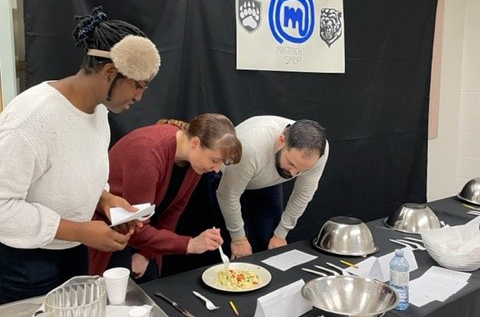
St. Martin de Porres kick started some key activities, such as building two raised cedar planter boxes, opening up their Farm to School Salad Bar, and creating their own SMDP MasterChef!-inspired competition which brought awareness and excitement to the school community around healthy and sustainable eating!
“..the Farm to Cafeteria Canada grant has really allowed our school to bring education on eating sustainably and locally to the forefront at our school. It has been an exciting endeavor and has even trickled into other initiatives, such as helping us re-think some of our waste management systems as we have converted to using more compostable packaging to serve our lunches. We are thankful to have been the recipients of the grant and all of the projects and initiatives it has allowed us to do for the students at St. Martin de Porres school.
Check out St. Martin de Porres’ full story, here.
Grand Rapids School – Waskanipaniw: Arriving full circle
| Grand Rapids, MB
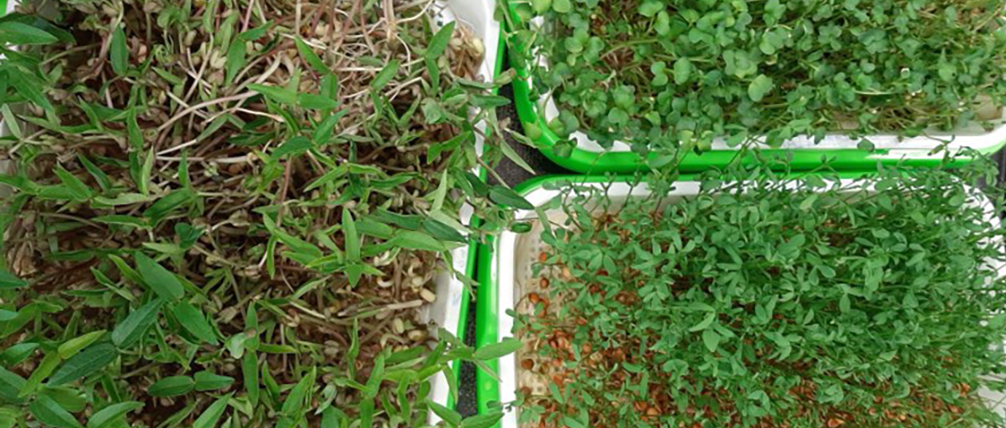
Grand Rapids School created an aquaponics laboratory for their students. “In Cree “Waskanipaniw” means to arrive full circle. The name embodies the very concept of aquaponics in which fish and plants are grown together in a recirculating system.” With the help of dedicated staff members who integrated lessons using small in-class aquaponic demonstrations and even expanded their daily lesson plans to include growing microgreens, the students were able to participate in and witness how a whole ecosystem functions.
“The light in the Waskanipaniw room is warm and inviting, a great environment for growing plants but also for fostering and nurturing the ever-important ideas of community food security and healthy eating. The concept truly has come full circle.”
Check out Grand Rapids’ full story, here.
Harbour View High school – Climate Action A Way of Life
| Saint John, NB
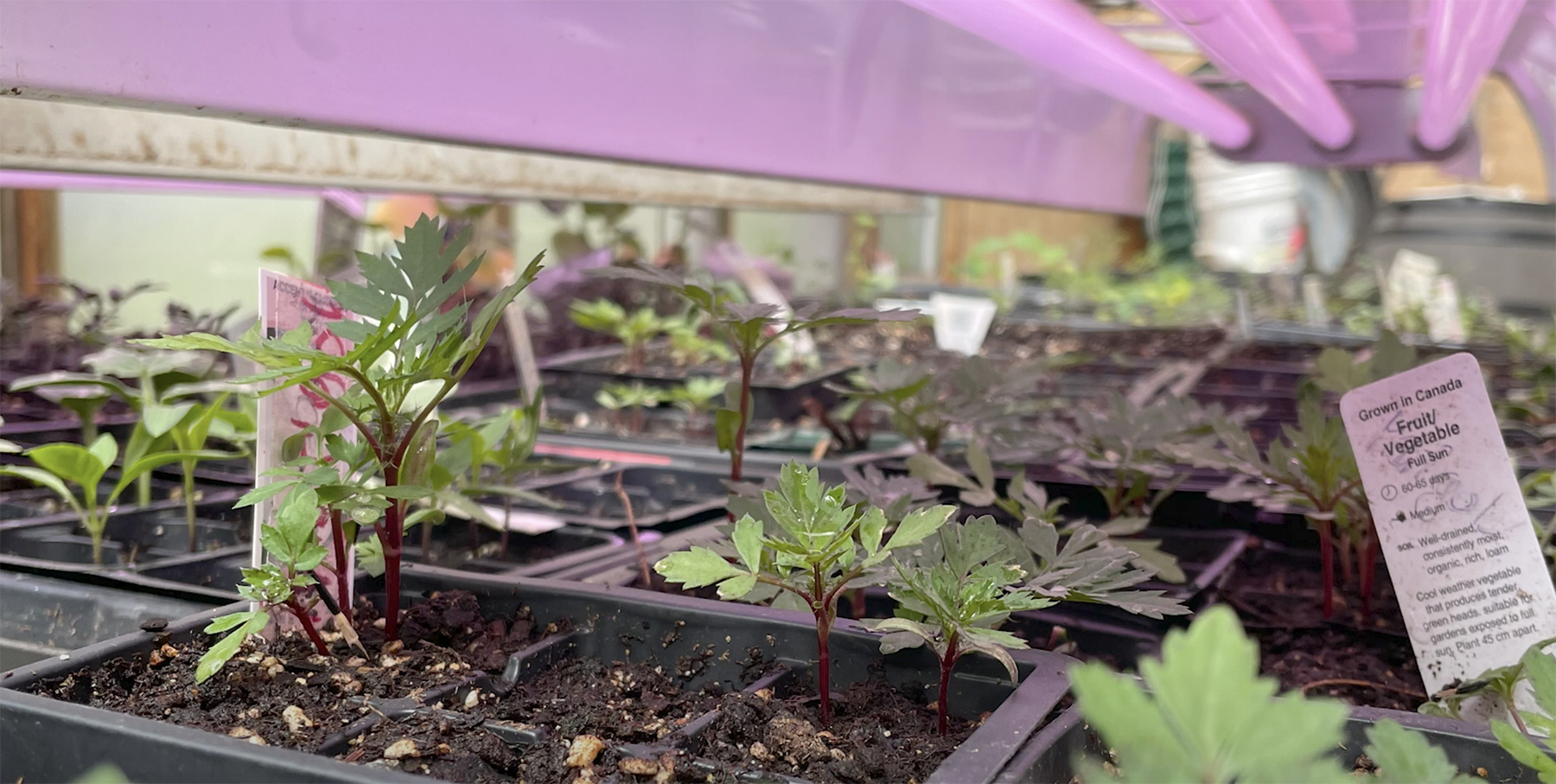
In Harbour View High school a group of students have come together to create a Climate Action Group. This group, which was initially formed by 23 students, now has 67 members, and participates in letter writing campaigns to their local government, reducing waste within the school, and gardening activities — all to raise awareness and do better to help the planet. Educators in this school have integrated their hydroponic grow towers into their teaching tools, along with providing guidance to other local elementary, middle schools who are interested in having their own hydroponic growing systems.
“Trying to change people’s behaviour during a global pandemic has not been easy. Our biggest heartbreaks occurred when we had to abandon our food composting program because our school district and landfill had concerns about contamination, and when our cafeteria closed. Trying to juggle distancing, sanitation and constant change has been a challenge, but it is one that we faced with smiles on our faces. But, there have been so many positives. Many school activities were cancelled; our club was able to keep going.
Check out Harbour View High School’s full story, here.
Musquodoboit Rural High School – Thoughtful Food Project
| Middle Musquodoboit, NS
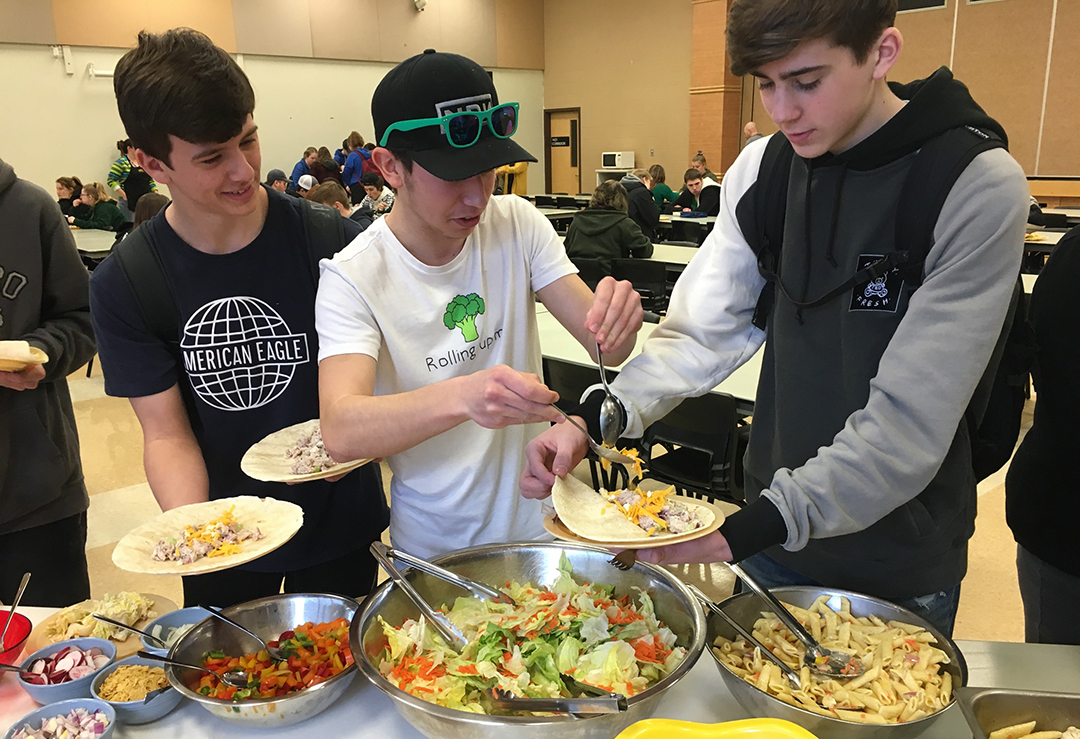
Musquodoboit Rural High School surveyed their students to see what they wanted to learn and engage in. To their surprise, “survey results highlighted a desire for practical cooking skills.” And this was the birth of The Thoughtful Food Project. As educators learned that Elders and students in their community were feeling isolated, this school offered meals to students, staff, and Elders in the community to foster more community connectedness, tackle food insecurity, and support mental health and wellness.
“…we brought in professional chefs to also cook with the kids. And…the meal was free for all students and staff. Plus…we invited area elders to join us for the meal. Rides were offered to the elders to bring them to the school. When they arrived they were met at the door and hosted by appointed students, served their meals by other students, and hugged by any possible relations and their friends. These meals literally changed the culture of the school.”
Check out Musquodoboit Rural High School’s full story, here.
Learning to grow food at CVDCS
| Chelmsford, ON
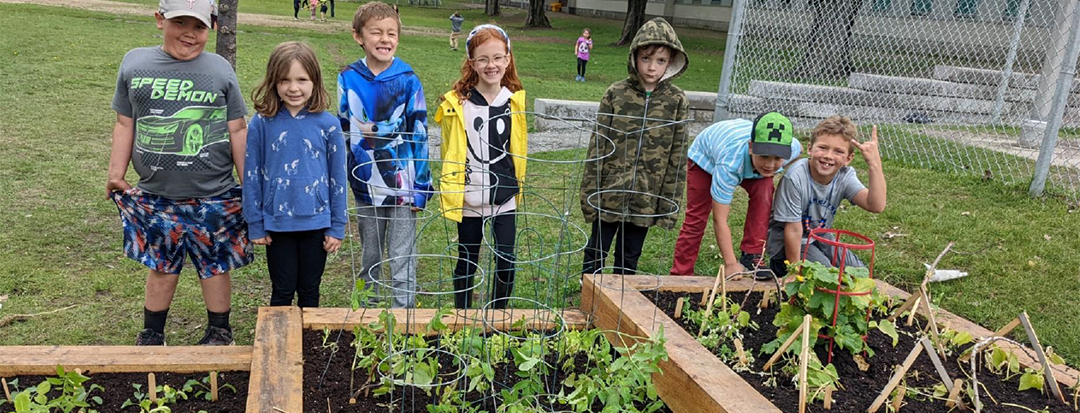
Chelmsford Valley Composite School located Chelmsford, Ontario shares how they involved their students and have first-hand student testimony about their experiences with growing. Students engaged in starting seedlings indoors, caring for those indoor seedlings and transplanting the seedlings to newly constructed garden beds.
Here is what the students have been saying.
“I would like to take more time to appreciate the value of food, and I would even like to improve my skills, and soon participate again in planting and tending a garden. I would like to make my garden to be able to grow my food and improve my skills in gardening.” – Amaya
Check out CVDCS’s full story, here.
If you want to learn more about the impacts of farm to school or find ideas and inspiration for your own school community, check out our full list of grantee stories here.




